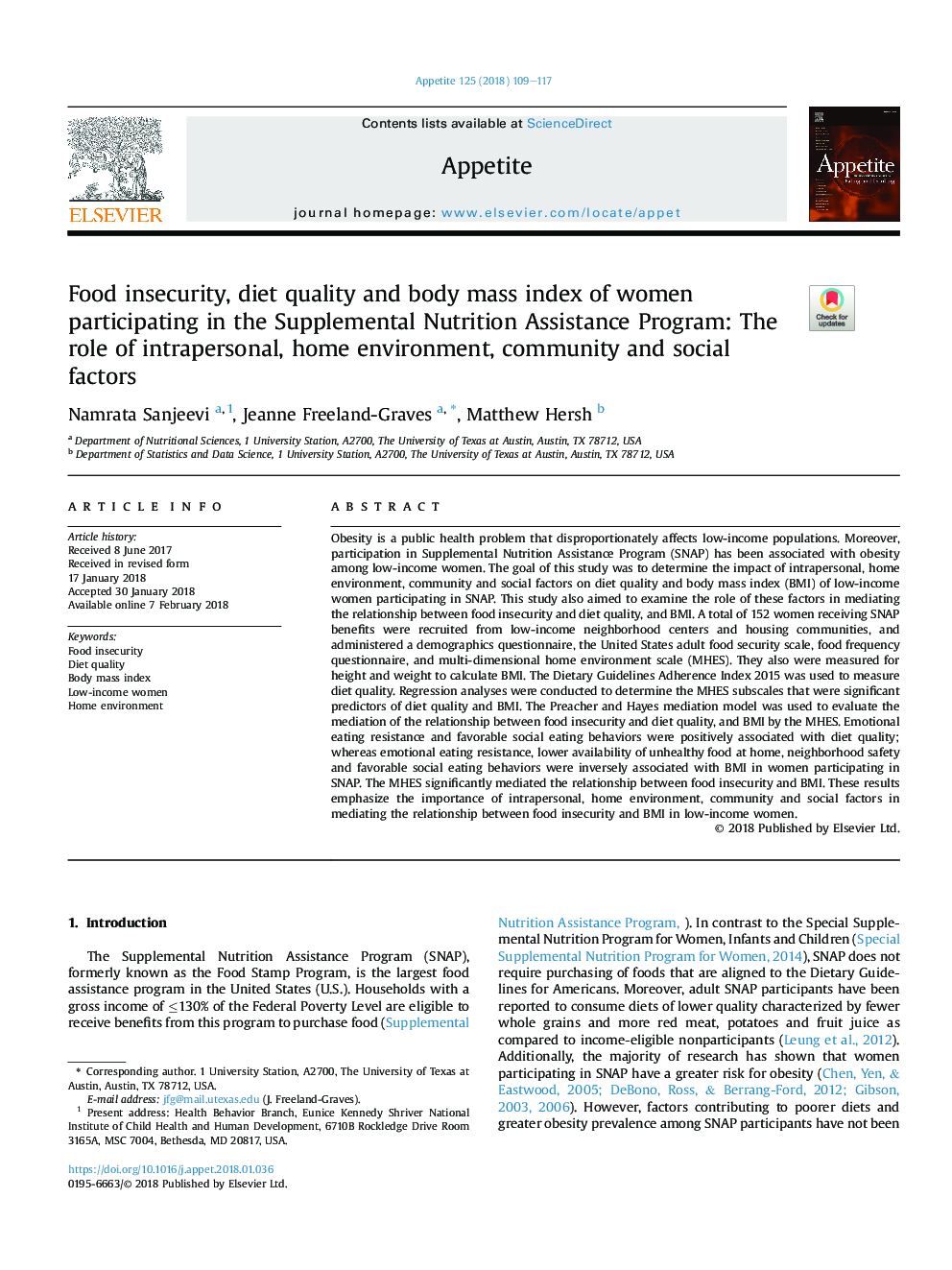| کد مقاله | کد نشریه | سال انتشار | مقاله انگلیسی | نسخه تمام متن |
|---|---|---|---|---|
| 7305710 | 1475355 | 2018 | 9 صفحه PDF | دانلود رایگان |
عنوان انگلیسی مقاله ISI
Food insecurity, diet quality and body mass index of women participating in the Supplemental Nutrition Assistance Program: The role of intrapersonal, home environment, community and social factors
ترجمه فارسی عنوان
ناامنی غذایی، رژیم غذایی و شاخص توده بدن زنان در برنامه کمک تغذیه تکمیلی: نقش محیطی درون فردی، محیط خانه، جامعه و عوامل اجتماعی
دانلود مقاله + سفارش ترجمه
دانلود مقاله ISI انگلیسی
رایگان برای ایرانیان
کلمات کلیدی
ناامنی غذایی، کیفیت غذا، شاخص توده بدن، زنان کم درآمد، محیط خانه،
موضوعات مرتبط
علوم زیستی و بیوفناوری
علوم کشاورزی و بیولوژیک
دانش تغذیه
چکیده انگلیسی
Obesity is a public health problem that disproportionately affects low-income populations. Moreover, participation in Supplemental Nutrition Assistance Program (SNAP) has been associated with obesity among low-income women. The goal of this study was to determine the impact of intrapersonal, home environment, community and social factors on diet quality and body mass index (BMI) of low-income women participating in SNAP. This study also aimed to examine the role of these factors in mediating the relationship between food insecurity and diet quality, and BMI. A total of 152 women receiving SNAP benefits were recruited from low-income neighborhood centers and housing communities, and administered a demographics questionnaire, the United States adult food security scale, food frequency questionnaire, and multi-dimensional home environment scale (MHES). They also were measured for height and weight to calculate BMI. The Dietary Guidelines Adherence Index 2015 was used to measure diet quality. Regression analyses were conducted to determine the MHES subscales that were significant predictors of diet quality and BMI. The Preacher and Hayes mediation model was used to evaluate the mediation of the relationship between food insecurity and diet quality, and BMI by the MHES. Emotional eating resistance and favorable social eating behaviors were positively associated with diet quality; whereas emotional eating resistance, lower availability of unhealthy food at home, neighborhood safety and favorable social eating behaviors were inversely associated with BMI in women participating in SNAP. The MHES significantly mediated the relationship between food insecurity and BMI. These results emphasize the importance of intrapersonal, home environment, community and social factors in mediating the relationship between food insecurity and BMI in low-income women.
ناشر
Database: Elsevier - ScienceDirect (ساینس دایرکت)
Journal: Appetite - Volume 125, 1 June 2018, Pages 109-117
Journal: Appetite - Volume 125, 1 June 2018, Pages 109-117
نویسندگان
Namrata Sanjeevi, Jeanne Freeland-Graves, Matthew Hersh,
